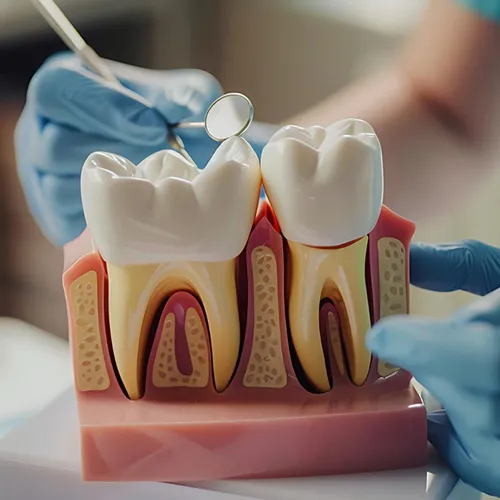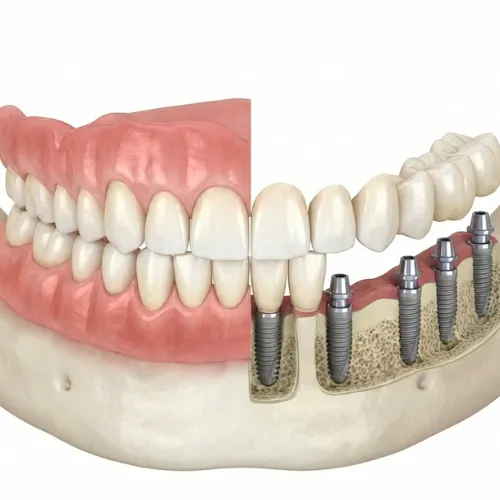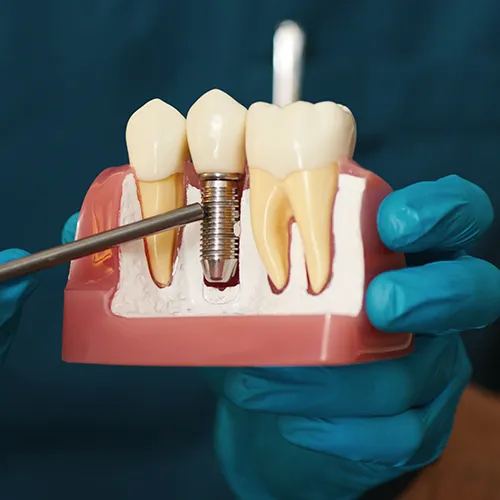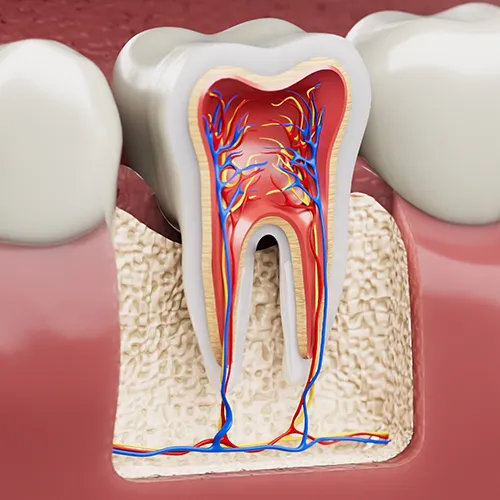Implant Dentistry
Finding the Right Dentist for Your Dental Implants: What You Should Know
Dental implants are one of the most effective ways to replace missing teeth and restore your smile. But while the implants themselves are designed to last for decades, their success depends heavily on the hands that place them. Choosing the right dentist isn’t just about finding someone nearby. It’s about trusting your smile, health, and investment to a skilled professional who knows exactly what they’re doing.
At Akemi Dental Specialists, we understand that patients often have questions about who actually places implants, what qualifications matter, and how to make the right choice. This is one procedure where doing your homework pays off. Let’s break it down step by step.
How do I choose the right dentist to place my dental implants?
The first step to a successful dental implant experience is selecting the right dentist. Here are a few key factors to consider when making your choice:
1. Experience matters more than anything else: Placing dental implants is both a science and an art. A dentist who has successfully placed many implants over several years will have the practical skills to handle a variety of cases, from simple single-tooth replacements to more complex full-arch restorations. Experienced dentists are also better equipped to anticipate and manage potential challenges during the procedure.
When you visit a dental office, don’t be afraid to ask how many implants the dentist has placed and what types of cases they handle. A confident, experienced professional will have no problem discussing their background with you.
2. Look for specialized training: Dental implants aren’t something every dentist learns extensively in dental school. Many general dentists pursue additional training through implantology programs, residencies, or fellowships to refine their skills. Others are board-certified specialists—such as periodontists, oral surgeons, or prosthodontists—who have advanced surgical and restorative expertise.
Ask your dentist about their training, certifications, and continuing education. A dentist who regularly updates their knowledge and skills is more likely to use the latest techniques and technologies, resulting in better outcomes for you.
3. Pay attention to treatment planning: Before the implant surgery, your dentist should conduct a thorough evaluation, including digital imaging, a clinical exam, and a review of your medical history. They should explain the treatment plan clearly, including the timeline, the number of appointments, and any preparatory procedures like bone grafting if needed.
A good implant dentist won’t rush you into surgery. They’ll take time to explain your options and ensure you fully understand the process before moving forward.
4. Check patient reviews and before-and-after results: While every patient’s experience is unique, reviews and testimonials can give you a good sense of a dentist’s professionalism, bedside manner, and the quality of their results. If possible, ask to see before-and-after photos of patients who have undergone implant procedures at the clinic. These images can help you set realistic expectations for your own treatment.
5. Comfort and communication are key: Beyond skill and training, your comfort level with the dentist matters. Dental implants are a multi-step process that involves several visits over a few months. You want to work with someone who communicates clearly, answers your questions, and makes you feel at ease throughout the journey.
Do general dentists or specialists place dental implants?
This is one of the most common questions patients ask, and the answer is: both can, depending on their training and experience. Here’s how it typically breaks down:
General Dentists: Many general dentists receive post-graduate training in implantology through workshops, residencies, and certifications. Some focus on straightforward implant cases, like replacing a single missing tooth, while others build extensive implant practices that rival specialists in terms of skill and technology. If a general dentist has placed a significant number of implants and continuously pursues advanced education, they can offer excellent care.
One advantage of having implants placed by your general dentist is convenience. If you already have a trusted relationship with them, continuing care in the same practice can streamline your treatment and follow-up visits.
Specialists: Specialists such as periodontists, oral surgeons, and prosthodontists often have more extensive surgical or restorative training.
- Periodontists specialize in the supporting structures of the teeth, like gums and bone. They’re highly skilled in preparing the mouth for implants and ensuring long-term stability.
- Oral surgeons are experts in complex surgical procedures. They handle challenging cases that involve impacted teeth, severe bone loss, or complicated extractions before implant placement.
- Prosthodontists focus on restoring teeth and are often involved in designing the final prosthetic crowns, bridges, or dentures that sit on top of the implants.
Specialists typically handle more complex cases or collaborate with general dentists. For example, a general dentist might refer a patient to an oral surgeon for implant placement and then complete the restoration with a crown once the implant has healed.
Collaboration is common. In many dental practices, implant treatments are a team effort. The surgical placement may be handled by a specialist, while the restorative phase is completed by your general dentist. This ensures you receive the highest level of expertise at each stage of the process.
The key takeaway is not whether the dentist is a generalist or specialist, but whether they have the right training, experience, and collaborative approach to deliver excellent results.
What qualifications should a dentist have to perform dental implant surgery?
Choosing someone qualified is essential for both the success of the procedure and your peace of mind. While licensing requirements vary by country and state, there are several universal qualifications and credentials you should look for.
1. Dental License and Accreditation: Every dentist must have a valid dental license to practice in their region. You can usually verify this through a local dental board or regulatory body. This ensures that the dentist meets minimum standards of education and ethical practice.
2. Postgraduate Implant Training: Because implant dentistry involves both surgical and restorative components, dentists who place implants typically undergo specialized training beyond dental school. This may include:
- Residency programs focused on implantology.
- Fellowships with organizations such as the International Congress of Oral Implantologists (ICOI).
- Advanced continuing education courses through accredited institutions.
Ask your dentist about their specific training programs and whether they hold any certifications or memberships with reputable implantology organizations.
3. Surgical Competence: If the dentist performs the surgical placement themselves, they should have comprehensive training in oral surgery, bone grafting techniques, and the use of modern implant systems. A well-qualified implant dentist should be able to evaluate bone density, plan the implant placement with precision, and manage any complications if they arise.
4. Restorative Expertise: Equally important is the dentist’s ability to restore the implant with a crown, bridge, or denture that looks natural and fits comfortably. Implant placement isn’t just about inserting a titanium post; it’s about designing a functional, beautiful tooth replacement that integrates seamlessly with your smile.
5. Use of Modern Technology: The best implant dentists use advanced diagnostic tools such as CBCT scans (cone beam computed tomography) and digital impressions to plan treatment with extreme accuracy. These technologies help minimize risks, shorten healing times, and improve outcomes.
6. Commitment to Continuing Education: Implant dentistry evolves rapidly, with new techniques and materials emerging every year. A qualified implant dentist stays current with these advances through continuing education courses, professional associations, and hands-on training.
What happens if you choose the wrong dentist?
It’s important to acknowledge that dental implants are a surgical procedure. If performed incorrectly, problems can arise, including implant failure, nerve damage, sinus complications, or poor aesthetic outcomes. While these risks are low when you choose a qualified professional, they increase significantly with inexperienced providers.
Choosing a dentist who lacks proper training or experience can result in implants that fail to integrate with the bone, leading to the need for revision surgery and additional costs. It can also mean a longer recovery time and less satisfying cosmetic results.
That’s why taking the time to vet your dentist is not just advisable—it’s essential.
What to expect from the right implant dentist
When you choose a qualified dentist, you should expect:
- A thorough consultation that covers your medical history, treatment options, and anticipated outcomes.
- Detailed imaging and planning before any surgical steps are taken.
- Clear communication about the procedure, recovery, and aftercare.
- A personalized treatment plan tailored to your unique oral health needs.
- Follow-up appointments to monitor healing and ensure long-term success.
The right dentist will make you feel informed and confident at every step of your implant journey.
Why patients choose Akemi Dental Specialists
At Akemi Dental Specialists, our team has advanced training in implant dentistry, years of surgical experience, and a deep commitment to patient care. We use state-of-the-art imaging technology to plan your treatment with precision and tailor every aspect to your individual needs.
Whether you need a single implant or a more complex restoration, you’ll receive expert care from highly qualified professionals who prioritize both function and aesthetics. Our goal is to give you a lasting, confident smile you can truly rely on.
Schedule Your Implant Consultation
If you’re considering dental implants, don’t leave your smile to chance. Choosing the right dentist is the foundation of a successful, long-lasting result. Schedule an appointment with Akemi Dental Specialists today to meet our team, explore your options, and take the first step toward a healthier, more confident smile.























